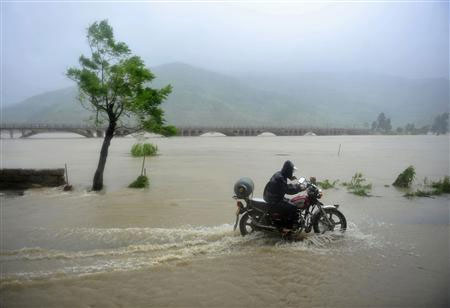The Mekong Delta provinces are penetrated by saltwater 70km deep
According to Southern Institute of Water Resources Research, from mid to late March 2012, saline water with salinity of 0.1 ‰ will penetrate 70km deep in the Mekong Delta provinces.
On Cua Tieu, Cua Dai and Ham Luong rivers, saline water with a salinity of 0.4 ‰ (causing damage to crops) penetrates 50 km, to My Tho city (Tien Giang); Tan Thach commune (Chau Thanh district), My Hoa (Ba Tri district) of Ben Tre province. Also in the three above rivers, saline water has a salinity of 0.1 ‰ penetrating deeply 70 km.

(Artwork: Vacne.org.vn)
On Co Chien and Cung Hau rivers, saltwater has salinity of 0.4 lên or more penetrating 55km to Duc My commune (Cang Long district, Tra Vinh province). Saline water with a salinity of 0.1 nhập penetrates 70 km to Long Thoi commune (Tieu Can district, Tra Vinh province) and Trung Thanh Tay commune (Vung Liem district, Vinh Long province).
On Dinh An and Tran De rivers, saltwater with salinity of 0.4 ‰ penetrates 60km to An Phu Tan commune (Tieu Can district, Tra Vinh province) and Nhon My commune (Ke Sach district, Soc Trang province). Saltwater with a salinity of 0.1 ‰ penetrates 70 km to Tra On Town (Tra On District, Vinh Long Province) and Phu Huu Commune (Chau Thanh District, Hau Giang Province).
In Ca Mau, on Ong Doc and Cai Lon rivers, saltwater has salinity from 4-29 ‰ to penetrate 65km deep into U Minh town (U Minh district) and Hoa Luu commune (Vi Thanh town, Hau Giang province). . Saline with the highest salinity (over 29 hiện), appears on both rivers during the period of March 21-25.
The Southern Institute of Water Resources Research said that salt water will flow into a number of focal channels in the Mekong Delta affecting the pumping of water into the field during the plowing process. The institute recommended that saline affected provinces should proactively arrange crops, crops and animals to reduce damage caused by saltwater.
In particular, the provinces should regularly check and close dams when big countries mobilize farmers to reinforce the dyke lines along canals and rivers to prevent saline water from flooding into the fields so that when rain falls. making sowing land for summer rice to catch up with the crop.
- H1N1 flu broke out in the Mekong Delta
- Environmental protection of surface water in the Mekong Delta
- Brag about the
- The whole Mekong Delta is subsiding at a rate of nearly 2.5cm per year
- The Mekong Delta risks being submerged under the sea
- Socialization of rice varieties
- 30 years for a sustainable agriculture
- Vietnam is supported to adapt to climate change
- Pairing for mango
- Do not dig more channels in the forest
- Bird flu recurrence in the Mekong Delta: The epidemic is expanding!
- Protection of mangrove ecosystem in Mekong Delta
 Is the magnetic North Pole shift dangerous to humanity?
Is the magnetic North Pole shift dangerous to humanity? Washington legalizes the recycling of human bodies into fertilizer
Washington legalizes the recycling of human bodies into fertilizer Lightning stone - the mysterious guest
Lightning stone - the mysterious guest Stunned by the mysterious sunset, strange appearance
Stunned by the mysterious sunset, strange appearance